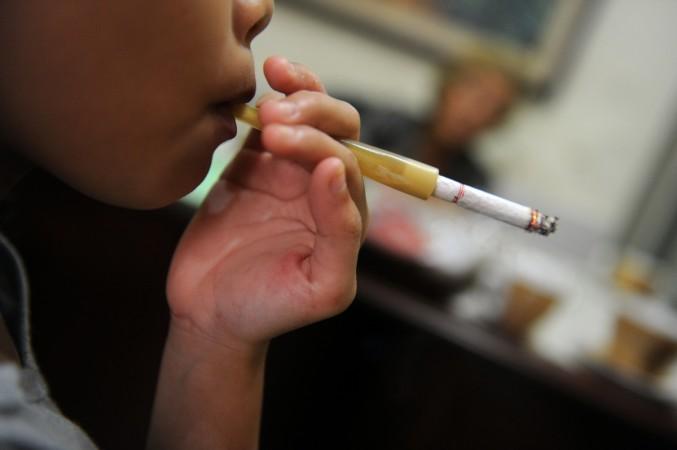
People around the world are celebrating the Christian festival of Epiphany with year-old traditions like outdoor swimming, festive cakes, bonfire and singing.
But, the village of Vale de Salgueiro in northern Portugal has grabbed attention as children as young as five years are encouraged to smoke cigarettes by their parents.
Also read: Can smoking up boost sexual pleasure?
Epiphany festival is celebrated by the Christians across the world as it marks the 12 days of Christmas. The ancient celebration marks the baptism of Jesus by John the Baptist.
However, during the two-day celebration, this long practised bizarre tradition of young children smoking cigarettes has sparked an outcry.
While the legal age to buy tobacco in Portugal is 18, the parents of this village are encouraging their kids to smoke cigarettes. Apparently, nothing can prevent them from doing this. Guess the irony?
According to the law, one has to be 18 to buy tobacco in Portugal, but no law prevents parents from giving cigarettes to their children.
However, there is no idea about the origin of the tradition and what it symbolises. Even the local people could not explain its significance. Guilhermina Mateus, a local coffee shop owner, was unable to tell the reason behind the practice.
"I don't see any harm in that because they don't really smoke, they inhale and immediately exhale, of course," Mateus is quoted as saying in a report by Metro.
"It's only on these days, today and tomorrow. They never ask cigarettes again, so I don't see any harm."
Carlos Cadavez, the president of village parish, said, "Only those who live and are raised here can truly understand the meaning of this tradition".
Carlos further said that his 10-year-old daughter Luisa would likely smoke two to three packets of cigarettes during the days of the celebration.
"I don't ask for people to understand, it is not easy to do so, anyone might think we are not good," he was quoted saying.
Jose Ribeirinha, who has penned down a book on the festival of the Portugal village, said the remote location of the place is also responsible that helped the people to keep the tradition alive.
The village, which is known as 'forgotten one', is situated 450 kilometres (280 miles) northeast of Lisbon.
"Normally traditions tend to disappear when there's many people together," he added.








